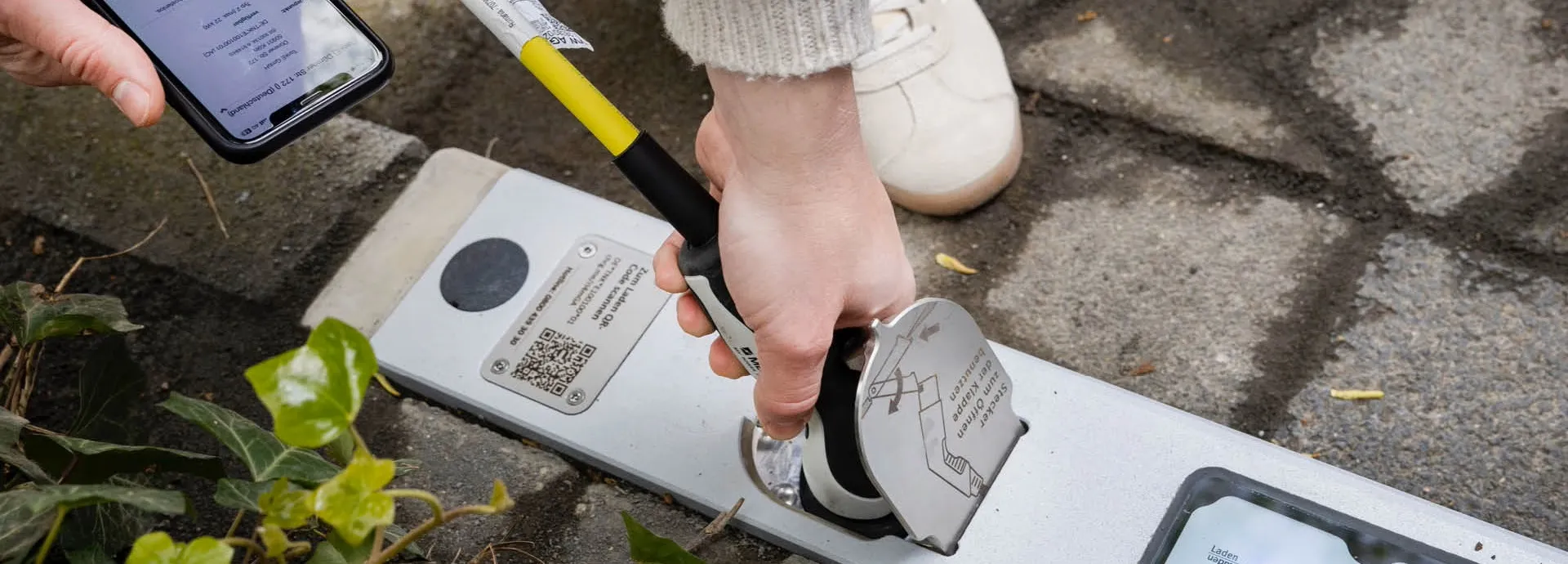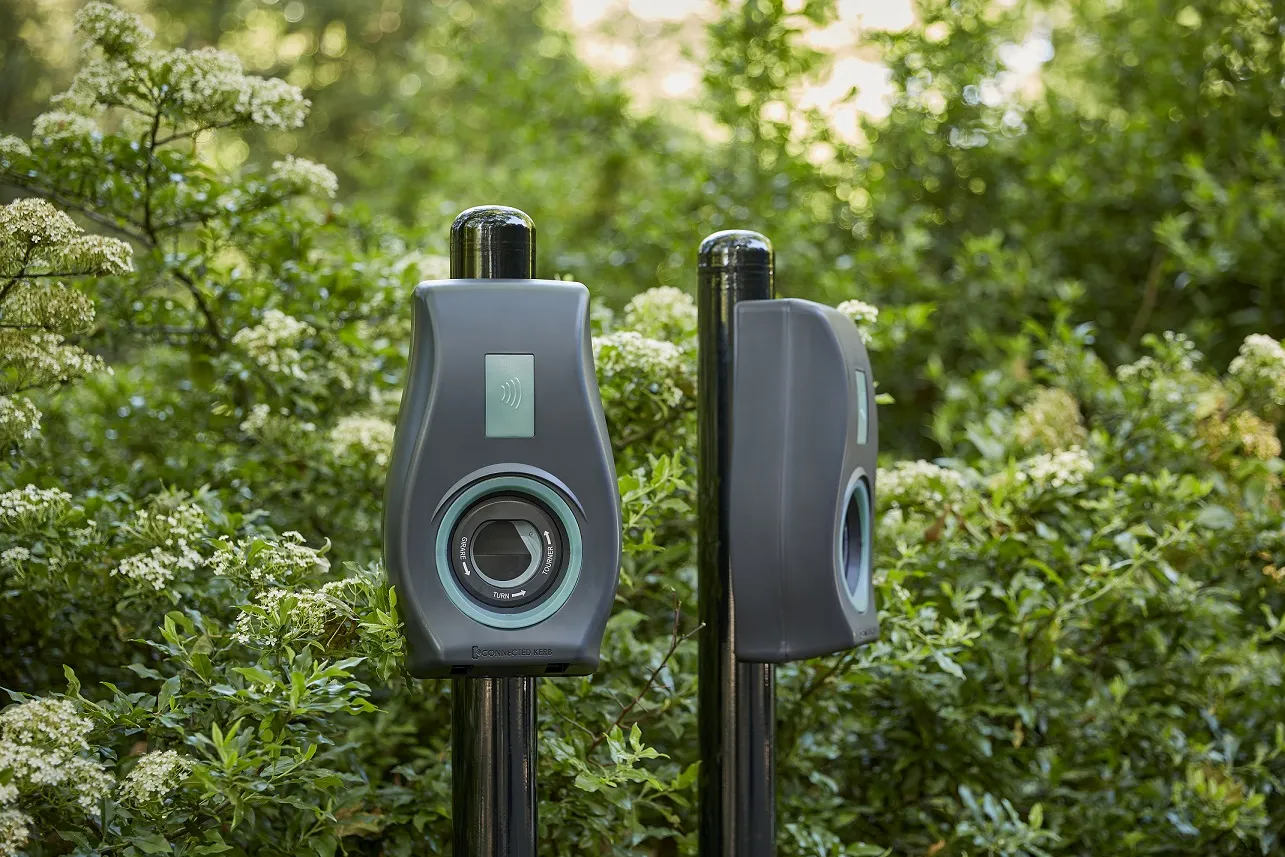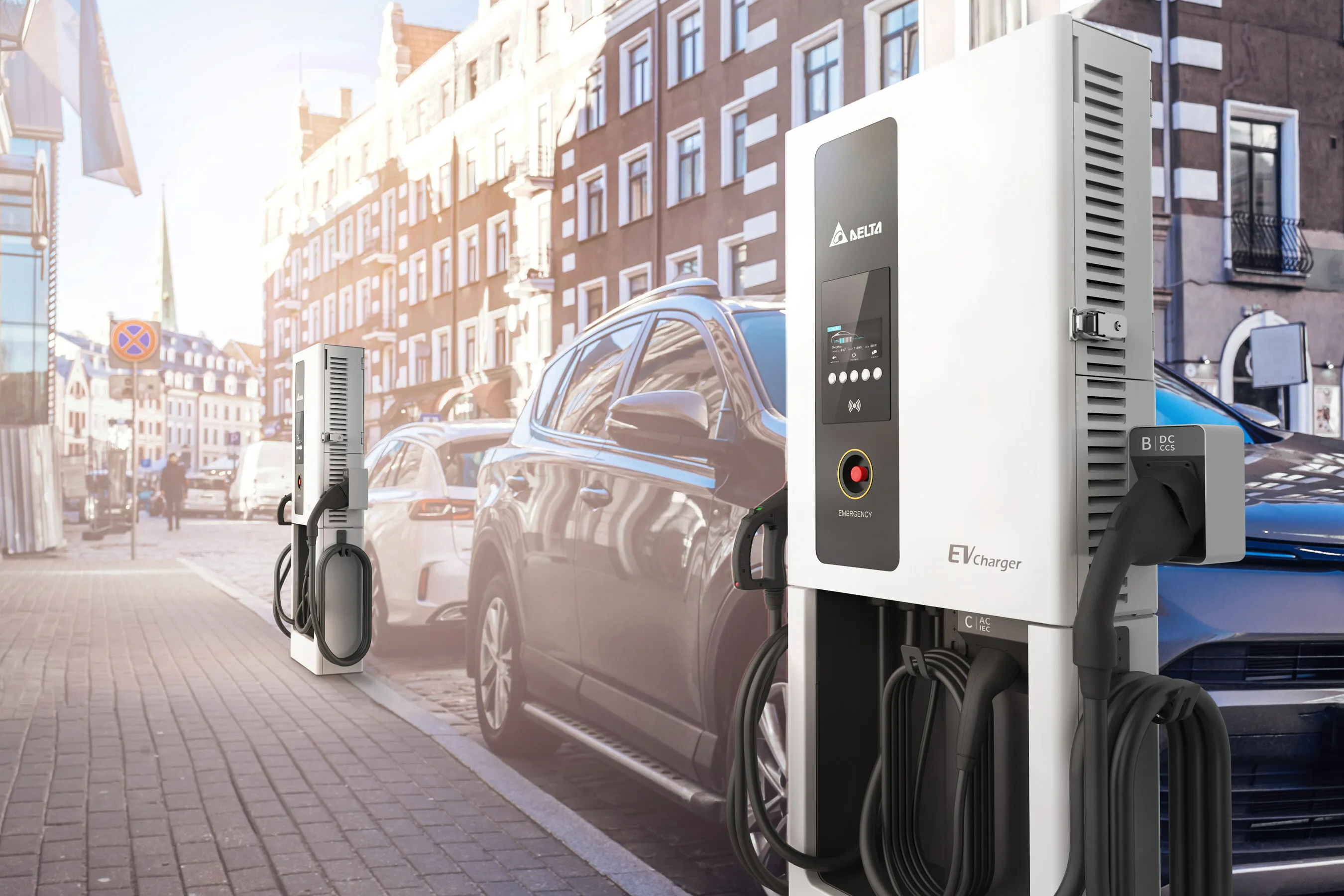
Rheinmetall is globally launching its Curb Charger public road EV charging product following a successful joint field trial in Cologne, Germany.
The City of Cologne, EV charging infrastructure operator Tank and Rheinmetall started the pilot of four public space Curb Chargers in April 2024 at two locations in Cologne-Lindenthal.
Rheinmetall says the results were positive with more than 2,800 successful charging cycles – an average of more than two per day and charging point – and the technical availability of over 99%. It adds that the Curb Charger proved not only powerful and reliable in all weathers, but was also in regular demand. With the completion of the pilot project, the four charging points are now being taken into regular operation.
Christoph Müller, CEO of Rheinmetall’s Power Systems division, comments: “Our product integrates the charger electronics into a standard Kerbstone to enable the charging of electric vehicles directly at the roadside – without obstructive bollards, intrusion into the pedestrian area, or compromises in terms of safety or aesthetics. This is how we are contributing to the mobility transition with innovative solutions. Our developed Curb Charger is a series-ready product. By this, urban charging infrastructure is rethought: space-saving, robust, barrier-free – and integrated into existing urban structures."
The results of the field trial revealed that a total of more than 50 MWh of energy was charged – an average of around 19 kWh per cycle, which corresponds to a range of approximately 120 kilometres. The compact, modular design allows for quick and easy maintenance by replacing the charging module inside the kerb. This has resulted in almost continuous availability of more than 99% at low operating costs. Accompanying the field trial, 100 users shared their experiences via a questionnaire between August 2024 and March 2025. On average, they rated the charging kerbstones with 4.38 out of 5 possible total points, with older participants (over 60 years of age) giving particularly positive feedback. Users particularly appreciated the opportunity to have a comprehensive charging option available locally with easy usability.
Compared to conventional charging stations, Rheimmetall says the Curb Charger also scored points in areas such as integration into the existing cityscape, protection against vandalism, space savings, conservation of vision lines, and the reduced risk of tripping over charging cables. The Curb Charger is considered to have slight advantages in terms of ergonomics, usability and accessibility. The main advantages mentioned in discussions however are easier parking, easy usability even from the street, the absence of unnecessary protective bollards and the possibility of single-handed operation.
Rheinmetall says the study proved that the Curb Charger can solve the problem of insufficient space in urban areas by enabling the quick, flexible, scalable and cost-effective installation of freely accessible public charging points. It offers cities and communities new opportunities to efficiently electrify previously untapped sites in densely built-up areas. Compared to conventional charging stations, operators benefit from reduced installation and maintenance costs and the option of pre-equipping so-called ‘hollow kerbs’ today, which can be flexibly retrofitted with charging modules at short notice and with little effort as the charging demand increases. For electric car drivers, charging points located close to home with barrier-free operation offer significant added value in everyday life.









